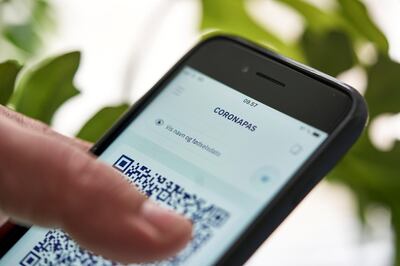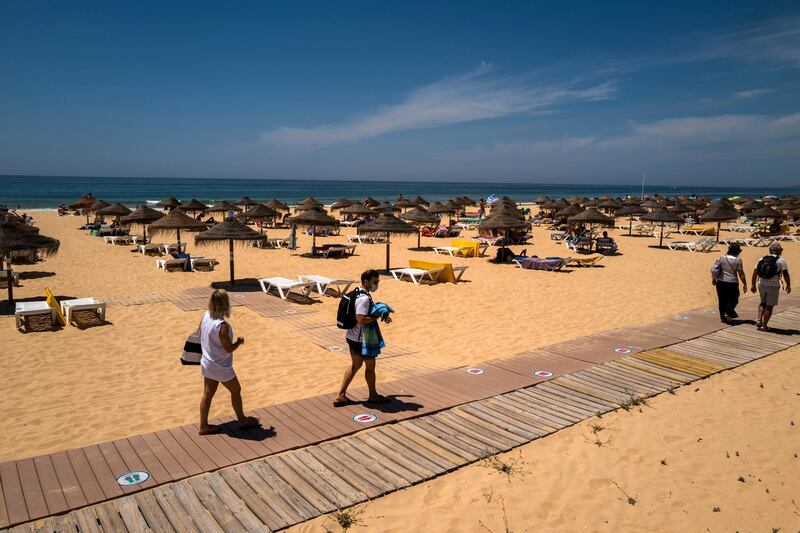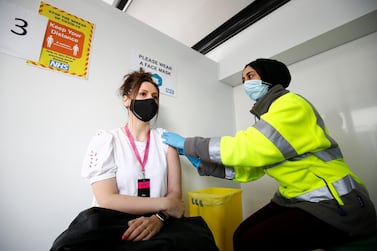Seven EU countries have started issuing Covid-19 vaccine certificates as Europe races to open up unrestricted travel across the bloc.
The European Commission said on Tuesday that Germany, Greece, Bulgaria, the Czech Republic, Denmark, Croatia and Poland had begun recognising the vaccination status of travellers.
The scheme - known as the EU Digital Covid Certificate - allows people who have been fully vaccinated against Covid-19, have a recent negative test result or have recovered from the disease to travel to other nations in the bloc free from quarantine or other entry requirements.
While only seven countries are part of the pilot launch, the commission has set a July 1 deadline for the remaining 20 EU states to sign up.
A commission website - called a “gateway” - also went live on Tuesday, allowing border officers and other officials to check the validity of the certificates.
Stella Kyriakides, EU Commissioner for Health, said the system was fully functioning in time for the peak summer season.
“EU citizens are looking forward to travelling again, and they want to do so safely,” she said.
“Having an EU certificate is a crucial step on the way.”
Under the EU system, member states can apply an “emergency brake” to stop variants of concern.
Member states can also make entry rules more flexible on their own territory, for instance by permitting half-vaccinated people in with no restrictions, or those vaccinated with jabs authorised by the World Health Organisation but not the EU.
Commission officials said that once the EU Covid certificate was operational it would pave the way for allowing visitors from outside the bloc.
Currently, most member states have collectively agreed on a very restricted "white list" of low-risk countries whose residents can enter, including Australia, South Korea and Israel.
EU ambassador to the UK Joao Vale de Almeida said he was optimistic that by next month mass tourism would be possible across Europe.

“I hope many, many British citizens will come to our countries and I hope many EU citizens will visit the UK,” he told the BBC on Tuesday.
“I think everybody is doing their utmost to create those conditions.”
He said it was hoped the digital certificate would make travel safe again.
“That is the way that we are looking to implement,” he said. “But we have to respect the situation in each member state. We’re hopeful that some time later in the summer, around July, we could be in a situation where travel and tourism will be made a lot easier.”
Meanwhile, Germany's public health agency lowered the coronavirus risk level to "high" from "very high" for the first time in 2021, reflecting a fall in the number of new infections.
Health officials said a faster vaccination distribution, wider testing and the introduction of nationwide restrictions helped break a third wave of infections.
"In view of the developments - both in infection numbers and the situation in intensive care units - we see the dynamics that led us to the new evaluation," said Health minister Jens Spahn.







